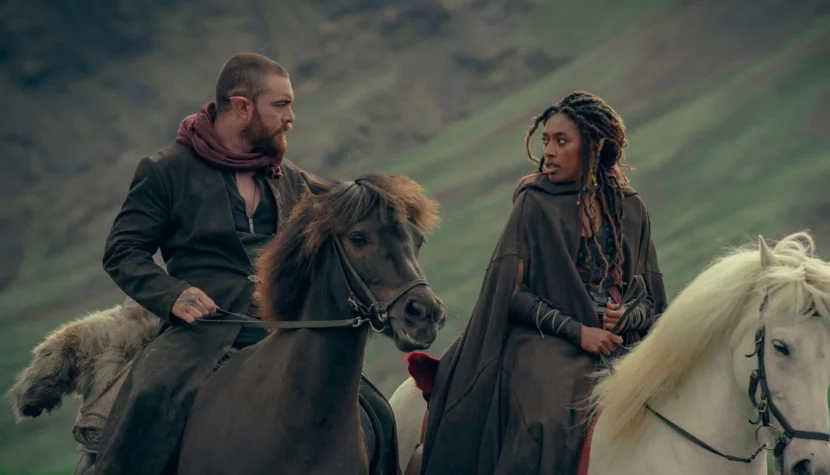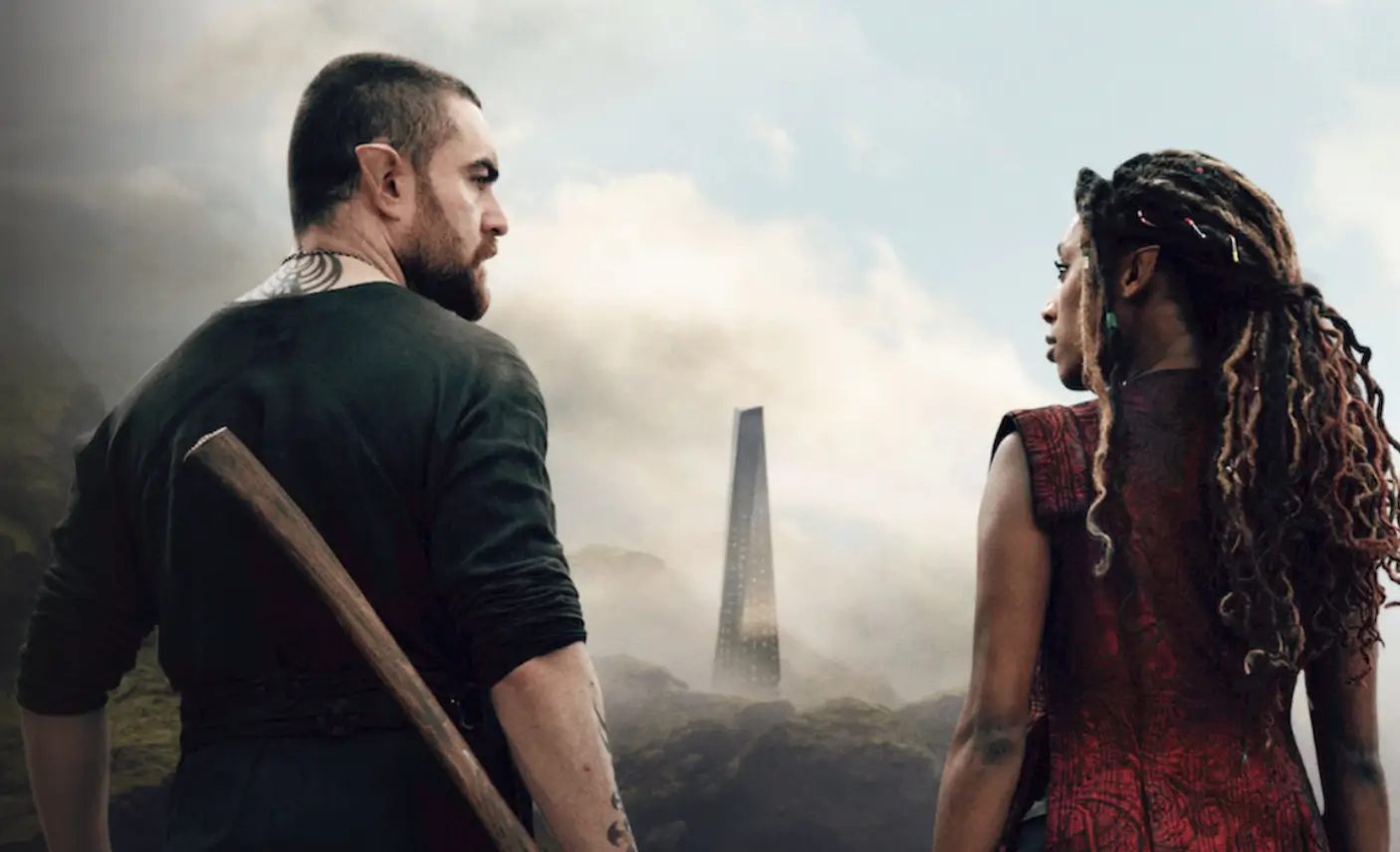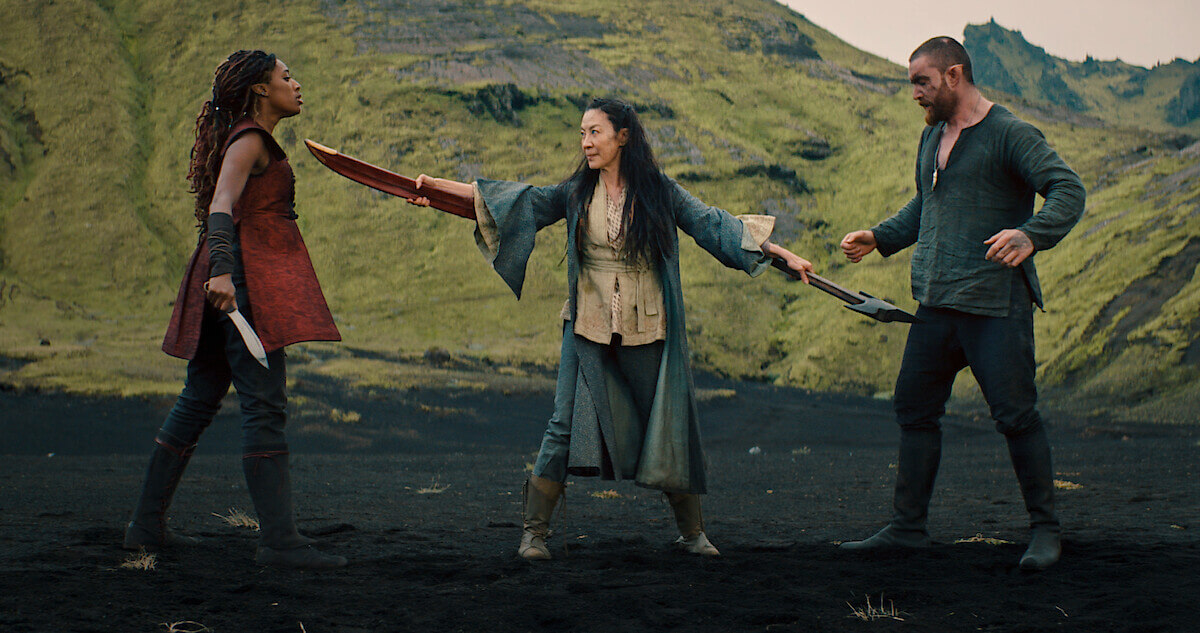LAURENCE O’FUARAIN and SOPHIA BROWN discuss THE WITCHER: BLOOD ORIGIN: “We wanted to make our show as relatable as possible”

Laurence O’Fuarain and Sophia Brown, the main characters, Éile and Fjall, from the newest Netflix show (a prequel) called The Witcher: Blood Origin, talked to us about their roles and the series’ audiovisual style.
How did you both balance the facts that Blood Origin is not only a new prequel for the whole universe but is also a series that takes the path designated by the previous show about The Witcher?
Laurence O’Fuarain: It needed to feel fresh and self-contained. It is based on the stories told in books and our TV show, yet we needed to invent something on our own. Only then the series would seem attractive to the new viewers. We asked ourselves a bunch of various questions: how did the universe look like before it was colonised by people? How did the whole “Conjunction of Spheres” affect The Witcher’s world? The balance was to take something from the books, but also to come up with some original ideas.
Sophia Brown: We got this opportunity to even read the scripts of the third season of the main show. When we spotted something useful for our own show, we immediately came to Declan De Barra [the main producer and writer] and said: look, you need to add this element or that one. Although we are actors, we also felt like a creative force during shooting. We were also aware that Blood Origin will have an inevitable end, that some of the characters might die, others will fall in love etc. Interestingly, Declan is a skilled writer, and he left some of the heroes in such interesting places/moments, that we still want to know what happens to them in the future. Thus, our show might be somehow linked to the other shows! That was also the case of the balance: to make the series independent but still integral to the universe.

Your show is hugely cinematic, and the best option would be to watch it on a big screen. However, I was wondering about your approach towards the way of getting to know the story. It is a Netflix production: people will it watch on their laptops, smartphones etc.
LO: Believe it or not, but we have been thinking about that issue. Let’s be honest: the whole world is using their iPhones to watch something on a train or bus. There is literally nothing wrong with accessing Blood Origin in any kind of place all over the world. As long as you will see the characters and care for them, nothing changes in that case. I won’t be frustrated if someone will see me on his mobile phone! [laughter]. This show has its premiere even during Christmas. And so what? People are still going to watch it!
Which cast member surprised you the most during the shooting process?
LO: None of them really: we knew whom we are going to work with, and every actor was chosen perfectly for his character. For instance, Michelle Yeoh was really surprising, and she is the biggest joker in the whole world; she’s been always trying to make us all laugh. Some characters were developed during the shooting, but I do not believe that there were any surprises. But discovering all of the actors was a magnificent experience. Working with the team was incessantly developing my personal skills. All of us believed in that world, thus we left our own hearts in it.
SB: However, although we depict some sort of fantasy, we wanted that universe to reflect our own world. The problems, issues portrayed, ongoing relationships: everything could have happened in a modern story. We wanted to make Blood Origin as relatable, and self-conscious as possible. Also, our team tried to improve the way how women characters are nowadays shaped by screenwriters. In most of the older fantasy movies, the male audience could easily relate to many of the characters. But what about women? There weren’t many female heroines in general. It’s not any sort of agenda, it’s just a way that our world is!

Do you think that the show was also inspired by some Irish mythology? Despite the fact that it is based on the books written by the Polish author, Andrzej Sapkowski.
SB: One hundred percent: even the aura of that show seems to be pretty “Irish”. I believe that Sapkowski was drawing not only from Polish but also from European mythologies (including Irish ones). Look at the names of our characters! That is the very first example. Because of that, the project feels brand new: we haven’t seen anything like that before.
Can you talk me through the decision that Joey Batey returns in that series as a bard Jaskier?
SB: What we hoped and wanted is to have some sort of introduction for new viewers. Jaskier’s motive is self-explanatory for the show: it tells us where exactly we will be landing (as the audience). Jaskier becomes the framing device that allows the writers to make a transition of going 1200 years into the past. Additionally, it pictures Jaskier as an individual; not every time he has to be Geralt’s companion.
To sum up, is your show still purely a typical fantasy, or can we name it a “dramatic piece of art set in the fantasy universe”?
LO: It is still fantasy: there has to be uniqueness in it. Otherwise, you’re just watching a drama in some universe with monsters and magic. Our show conveys some classical dramatic elements like portraying politics or setting the whole thing in a more or less medieval era. But it is still The Witcher: with every episode, we reveal some new tropes that can only be found in our universe. Therefore, it is a production that cannot be compared to anything else released in a past.

